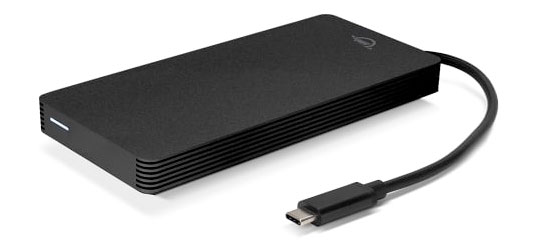Hosted by site sponsor WebMate.
Retina MacBook Air Q&A
Update Published November 9, 2020
All Mac Q&As >> Retina MacBook Air Q&A (Home) | Also See: All MacBook Air Specs
To be notified of new Q&As, sign up for EveryMac.com's bimonthly email list.
What custom processor options are available for the Retina MacBook Air?
For the "Late 2018" MacBook Air -- the MacBook Air "Core i5" 1.6 13" (Late 2018) and "2019" MacBook Air -- the MacBook Air "Core i5" 1.6 13" (True Tone, 2019) -- Apple did not provide a custom processor option. Both shipped with a 1.6 GHz Core i5 "Amber Lake Y" (I5-8210Y) processor.
For the "2020" MacBook Air models, there are two stock models -- the MacBook Air "Core i3" 1.1 13" (2020) and "Core i5" 1.1 13" (2020) -- either of which could be upgraded to a 1.2 GHz Core i7 "Ice Lake" (I7-1060NG7) processor via custom configuration.
What type of RAM does the Retina MacBook Air use? Can it be upgraded?
The "Late 2018" and "2019" Retina MacBook Air models shipped standard with 8 GB of 2133 MHz LPDDR3 SDRAM onboard.
The "2020" Retina MacBook Air models shipped with 8 GB of faster 3733 MHz LPDDR4X SDRAM onboard.
At the time of initial system purchase, all Retina MacBook Air models could be upgraded to 16 GB of RAM for US$200, but these notebooks cannot be upgraded later.
What type of internal storage does the Retina MacBook Air use? Is it possible to upgrade it?
All Retina MacBook Air models use onboard PCIe-based storage. All models could be upgraded at the time of initial system purchase. It is is not possible to upgrade the internal storage after purchase.
The MacBook Air "Core i5" 1.6 13" (Late 2018) could be upgraded to a 512 GB or 1.5 TB SSD. The 512 GB storage was an extra US$400 or US$200 increase from the 128 GB and 256 GB options, respectively; and the 1.5 GB storage was an extra US$1200 or US$1000 increase from the 128 GB and 256 GB options, respectively.
The MacBook Air "Core i5" 1.6 13" (True Tone, 2019) could be configured with a 256 GB, 512 GB, or 1 TB SSD at additional cost. 256 GB, 512 GB, and 1 TB of storage were available for an extra US$200, US$400, and US$600 from the base option originally configured with a 128 GB SSD. 512 GB and 1 TB of storage were available for an extra US$200 and US$400 for the higher-end default option originally configured with a 256 GB SSD.
The "2020" MacBook Air models -- the MacBook Air "Core i3" 1.1 13" (2020) and "Core i5" 1.1 13" (2020) -- also have storage that could be upgraded at the time of initial system purchase.
Specifically, the entry-level "2020" MacBook Air was configured by default with a 256 GB SSD, but it also could be configured with a 512 GB, 1 TB, or 2 TB SSD for an additional US$200, US$400, and US$800, respectively. The higher-end stock model is configured by default with a 512 GB SSD, but it also could be configured with a 1 TB or 2 TB SSD for an additional US$200 and US$600, respectively.
How do you connect external storage to the Retina MacBook Air? Which is the best option?
The Retina MacBook Air models have two Thunderbolt 3 ports (USB-C connectors) and can directly use any USB-C or Thunderbolt 3 storage.
It also is possible to use an older USB 3.0 (USB-A connector) or Thunderbolt 2 hard drive with an Apple USB-C to USB adapter (MJ1M2AM/A) or an Apple Thunderbolt 3 (USB-C to Thunderbolt 2) (MMEL2AM/A) adapter, respectively. However, for maximum performance, it is best to use Thunderbolt 3-based storage.

One good option is the affordable, highly portable OWC Envoy Pro EX from site sponsor Other World Computing.
Permalink | Report an Error/Typo | Sign Up for Site Update Notices
<< Retina MacBook Air Q&A (Main)
Established in 1996, EveryMac.com has been created by experts with decades of experience with Apple hardware. EveryMac.com includes, and always has included, original research incorporating detailed, hands-on inspection of packaging, computers, and devices as well as extensive real-world use. All information is provided in good faith, but no website or person is perfect. Accordingly, EveryMac.com is provided "as is" without warranty of any kind whatsoever. EveryMac.com, and the authors thereof, shall not be held responsible or liable, under any circumstances, for any damages resulting from the use or inability to use the information within. For complete disclaimer and copyright information please read and understand the Terms of Use and the Privacy Policy before using EveryMac.com. Copying, scraping, or use of any content without expressed permission is not allowed, although links to any page are welcomed and appreciated.
